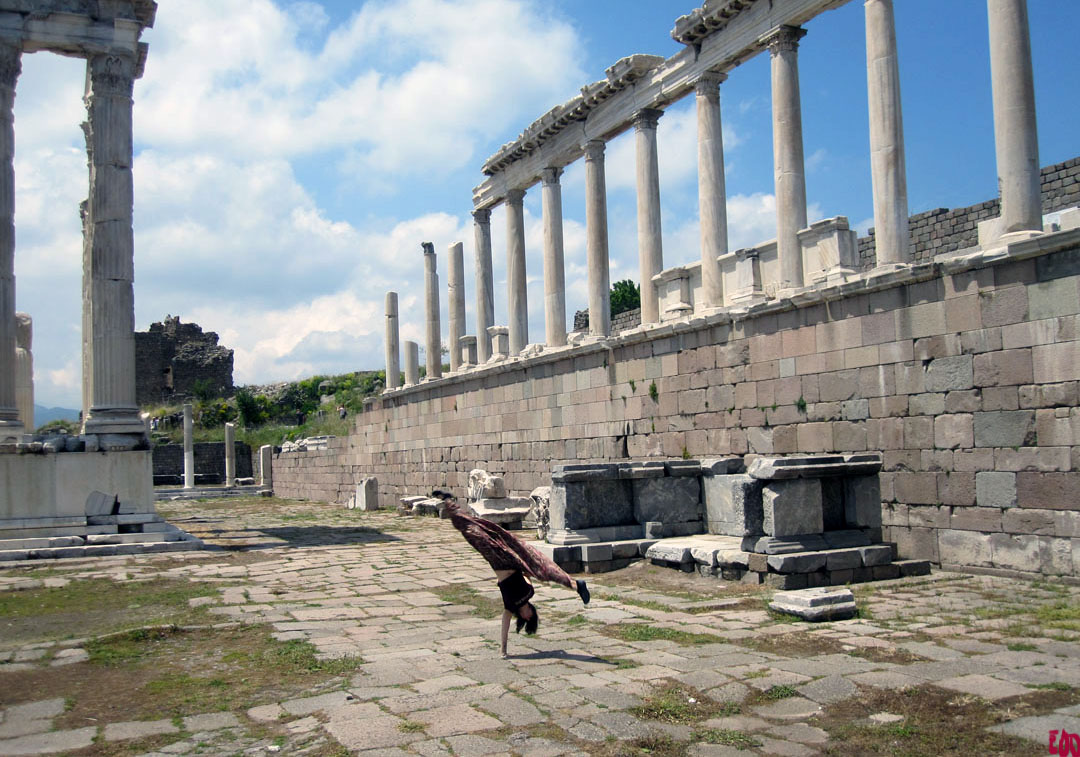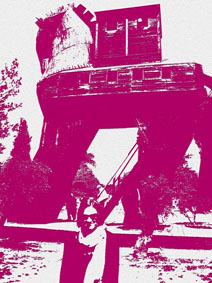EMILY: “Does anyone ever realize life while they live it…every, every minute?
STAGE MANAGER: No. Saints and poets maybe…they do some.
— Our Town
This week, my students in Lebanon and I have been reading the Odyssey. We’ve left Gilgamesh and Mesopotamia behind to focus on the Greeks and their classics. One of my favorite books of the Odyssey is Book 11, in which Odysseus travels to the underworld–where he encounters a number of characters–like an old crew member, his own mother, and the blind prophet Tiresias who predicts his future. Each character has a different piece of wisdom to impart from beyond the grave–about life and realities of the underworld. The entire chapter consists of Odysseus’ dialogues with the dead.
…which brings me to Our Town. To help my students relate to our ancient hero’s voyage through the underworld, I paired our reading of the Odyssey with the third act of Our Town. One of the many reasons why Our Town has always been one of my favorite plays is because Thornton Wilder, who spent his formative years in Shanghai, borrowed heavily from the techniques, style, and staging of Chinese opera to create this brutal and unflinching play. Our Town–far from its sentimental stereotype–was created as a radical hybrid of theatrical styles and philosophies from both the “east” and the “west.” What better place, I thought, than Beirut–itself a splendid blend of the “east” and “west”–to contemplate what the dead in Our Town have to say to us–the (currently) living…
Yes, now you know. Now you know! That’s what it was to be alive. To move about in a cloud of ignorance; to go up and down trampling on the feelings of those about you. To spend and waste time as though you had a million years. To be always at the mercy of one self-centered passion, or another. Now you know — that’s the happy existence you wanted to go back to. Ignorance and blindness.”
― Simon Stimson, Our Town
I have a rule about Our Town–anytime I hear it’s being produced in my vicinity–whether it’s on Broadway, or at a local theatre, I make it a point to go and see it. Call it a pilgrimage, a ritual, a catharsis–whatever. The last time I saw it produced, it was hard to hear the actors deliver their lines over the sobbing of the audience in the third act. The play worked just like it’s supposed to. Curious to see what my Lebanese students would make of this groundbreaking play–which challenged kitchen sink naturalism years before Brecht and Beckett–I showed them scenes from the production of Our Town below with Paul Newman cast in the role of the Stage Manager.
In the monologue that transitions into the devastating third act, Paul Newman, as the Stage Manager, discusses what’s “eternal” in all of us–what people “have been telling us for 5,000 years.” To watch that monologue, you can tune in to the production below at the 1:28:00 mark–or just click here to go straight to the monologue (since WordPress won’t let it load). In this five minute monologue, he says, “Some of the things they’re [the dead] going to say maybe’ll hurt your feelings, but that’s the way it is.”
Both the Odyssey and Our Town ask us to contemplate what we might learn from dialoguing with the dead–even if it’s not what we want to hear. Odysseus returns to the world of the living renewed with the knowledge he’s acquired from the underworld–and Emily in Our Town chooses to temporarily leave death behind to re-visit the living–though she’s horrified at what she finds…and it destroys me every time…
…mother’n daughter … husband’n wife … enemy’n enemy … money’n miser … all those terribly important things kind of grow pale around here. And what’s left when memory’s gone, and your identity, Mrs. Smith?
— Stage Manager, Our Town
http://www.youtube.com/watch?v=8bTsoAhFHG4
Good-by, Good-by, world. Good-by, Grover’s Corners… Mama and Papa. Good-by to clocks ticking… and Mama’s sunflowers. And food and coffee. And new-ironed dresses and hot baths…and sleeping and waking up. Oh, earth, you’re too wonderful for anybody to realize you.
— Emily, Our Town

